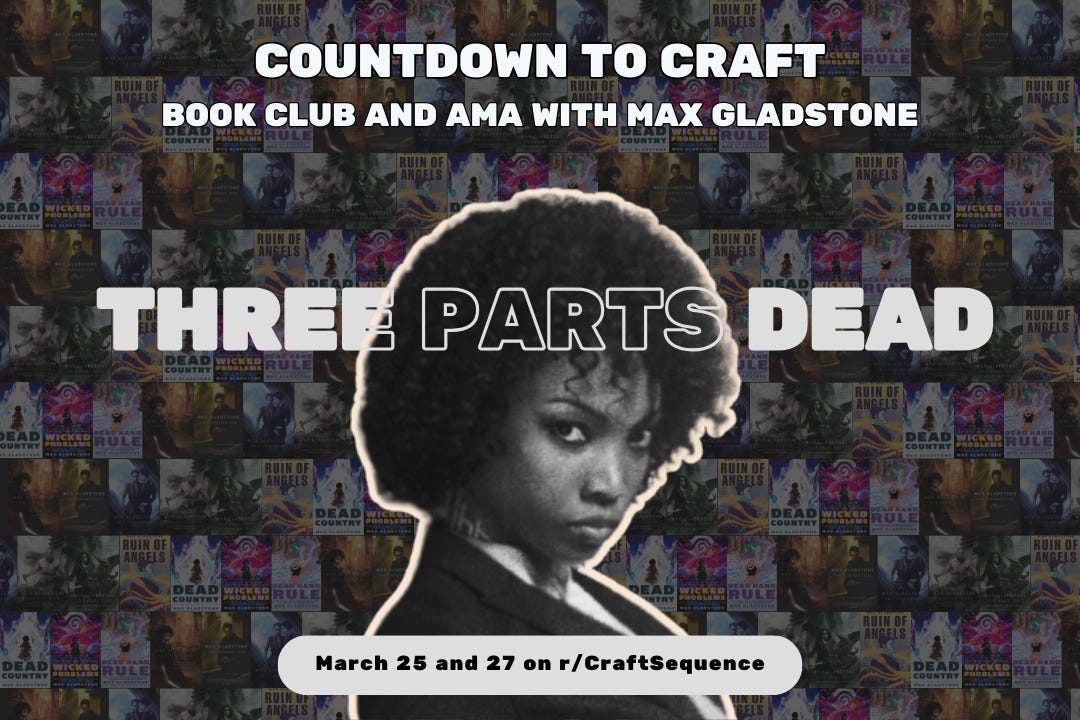Hi all! I’m still here. A bit rumpled and shambolic (moreso than usual? how would you tell?), with a few more holes in me than is ideal, on many fewer painkillers than last week—anyway, here.
Tomorrow, March 22, I’ll be signing books as part of the Bow Market Book Fair in Union Square in (scenic) Somerville Massachusetts, at Remnant Brewing—invited by the fine folks at Side Quest Books. My signing runs 2-3, and the weather looks to be fine. I plan to show up around 1:00 or so to hang out, scope the scene, and consume available beverages. Come join me! Or don’t, in which case I might get a chance to finish reading this biography of John Singer Sargent. Either way, a win for me!
Next week, we kick off the Countdown to Craft—a monthly book club hosted by the fine folks over at the Hidden Schools and the r/CraftSequence subreddit. We’ll kick off with a discussion on March 25—I’ll post a few discussion questions to the subreddit but keep away so folks can chat. Then, on March 27, I’ll be back for an AMA.
As a teaser for the discussion questions, I thought I’d talk a bit about a book that was pivotal to the development of the series. I had been playing with the basic intuitions behind the Craft for years, inspired by the particular way the world was on fire in the early oughts—by my experiences in the non-profit sector & China, thoughts about public service and education, and the discontents and horrors of a disenchanted world set against the equally obvious (to me, then) discontents and horrors of the supposedly enchanted one that preceded it. (I see this tension explored less than I’d expect—it’s so easy to fail either into moral equivalence, where everybody’s wrong which makes everything the same, or didacticism, in which the instructional or doctrinal point crushes human complexity. (I think Sung-Il Kim’s Blood of the Old Kings is a great take on this material.)
I honestly do not remember who recommended Michael Taussig’s The Devil and Commodity Fetishism in South America to me in 2008, but it was a crystallizing text. Taussig was a bridge between my reading in theology and religion, and my experience of (and education in) liberalism and neoliberalism. Taussig’s book treats on the mythological and magical concepts used by various South American folk to understand the fundamental weirdness of the capital economy, in which dead things reproduce and grow (accumulate interest), in which contracts signed with your name bind your soul, in which planting money with sugar cane increases yield but saps life from the soil. Of course the language of magic could describe capital and the law—what else could? In the wake of the great financial crisis, that language seemed more necessary than ever.
Okay, that’s what I’ve got for now. I hope to see some of you on Saturday—barring further medical disaster—and look forward to the chat next week. Take care of yourselves. Work for the liberation of all sentient beings.





So glad to hear you're doing better! Will try to see you tomorrow :)